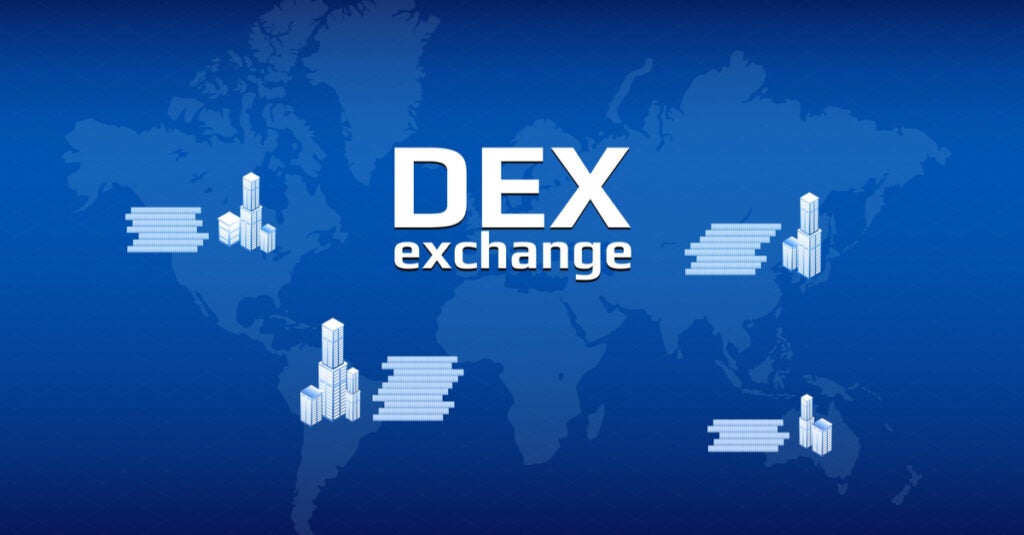
James Carter
Best Tips on How to Launch a Token on a DEX 2023

A decentralized exchange (DEX) is a blockchain-based platform for trading cryptocurrencies or tokens without the need for a centralized intermediary. DEXs operate on a peer-to-peer network, allowing users to trade directly with each other, providing greater security, privacy, and control over their funds and trades. DEXs typically employ smart contracts for executing trades and often rely on non-custodial wallets, where users retain control of their private keys and assets at all times.
Benefits of Launching a Token on a DEX
Decentralization: Decentralized exchanges (DEXs) operate on blockchain technology and do not have a central authority or intermediaries, thereby providing more security and independence to token holders.
Security: DEXs employ smart contracts for executing trades, reducing the risk of hacking, theft, or any malicious activities.
Censorship Resistance: DEXs are not controlled by any central authority, and as a result, token listings and trades cannot be censored or banned.
Privacy: DEXs offer privacy-focused features such as non-custodial wallets, ensuring that users remain in control of their funds and information at all times.
Accessibility: DEXs allow users to trade tokens without having to go through a centralized exchange, thereby providing more accessibility and reducing barriers to entry.
Lower Fees: DEXs typically charge lower fees compared to centralized exchanges, as they do not have to incur the overhead costs of running a centralized platform.
Liquidity: DEXs aggregate liquidity from various sources, providing a deeper and more diverse pool of tokens to trade.
Community Ownership: DEXs are typically governed by the community, providing token holders with a greater degree of ownership and control over the platform.
Cross-chain compatibility: DEXs support tokens from various blockchain networks, allowing for greater interoperability and liquidity between different tokens.
Auto-execution of trades: DEXs use smart contracts for trade execution, ensuring that trades are automatically executed once conditions are met, thereby reducing the risk of human error or manipulation.
WATCH THE VDEO BELOW FOR MORE CRALIFICATION
How to Launch a Token on a DEX Step by Step
A stock, bond, or commodity may be represented by a token, which is a digital asset that stands in for the actual item. Tokens can be traded and exchanged for other cryptocurrencies or fiat currencies, offering consumers a new and innovative way to invest in and trade in assets. Tokens can be traded and exchanged on the Ethereum blockchain.
When decentralized exchanges and tokens work together, entrepreneurs and businesses have a big chance to launch new and interesting digital assets. In this article, we’ll talk about the steps you need to take to get a token up and running on a decentralized exchange.
- Researching the Right Decentralized Exchange (DEX)
The first step in launching a token on a decentralized exchange is to research and evaluate the various DEX platforms available. There are many different DEX platforms, each with its own unique features, security measures, and liquidity levels.
When evaluating different DEXs, consider factors such as the platform’s security measures, user interface, trading fees, and the types of tokens that are supported. Additionally, look into the platform’s liquidity, as this will directly impact the success of your token’s launch.
Another essential factor to consider when selecting a DEX is the platform’s community and user base. A strong and active community can help drive adoption and interest in your token.
Once you have thoroughly evaluated the different DEXs available, select the one that best meets your needs and the requirements of your token.
- Preparation of Token Contract
Once you have selected a DEX, the next step is to prepare the token contract. This involves defining the purpose and function of your token, designing its technical specifications, and coding the contract using a suitable programming language.
When defining the purpose and function of your token, consider factors such as its intended use case, its target market, and the benefits it will offer to its holders. This information will help guide the design and development of your token’s technical specifications.
When it comes to coding the token contract, consider using a programming language such as Solidity, which is specifically designed for the Ethereum blockchain. This language is widely used and has a large and active community, making it an ideal choice for developing a token contract.
- Auditing of Token Contract
Once you have completed the coding of the token contract, it is important to have it audited by a reputable third-party auditing firm. This step is critical, as it ensures that your contract is secure and free from vulnerabilities that could be exploited by malicious actors.
When selecting an auditing firm, consider factors such as their expertise, experience, and reputation in the industry. A reputable auditing firm will thoroughly test and review your contract, providing recommendations and suggestions for improvements.
It is important to implement any recommendations from the audit to ensure the security and stability of your token contract.
- Listing the Token on the Decentralized Exchange (DEX)
The next step in launching a token on a decentralized exchange is to list the token on the chosen DEX. This involves setting up a wallet on the platform, submitting the token contract for review, and completing any necessary verification and compliance requirements.
When setting up a wallet on the DEX, consider factors such as the platform’s user interface and security measures. This will ensure that you have a secure and user-friendly experience when trading your token.
Once you have set up a wallet, submit your token contract for review by the DEX. This process will typically involve the DEX reviewing your token’s technical specifications, security measures, and overall compliance with the platform’s rules and regulations.
Once the token has been approved by the DEX, you will need to complete any necessary verification and compliance requirements. This may involve providing personal and business information, as well as undergoing identity verification processes.
- Launching the Token
Once your token has been listed on the DEX, it’s time to launch it. This involves setting the initial price and liquidity of the token, initiating a marketing campaign to raise awareness, and monitoring and managing the token’s performance on the DEX.
When setting the initial price and liquidity of your token, consider factors such as the current market conditions, your token’s value proposition, and your target market. It’s important to set a realistic and achievable price for your token, as this will help ensure its success and attract interested buyers.
Initiating a marketing campaign is also crucial in raising awareness and attracting interest in your token. This may involve various marketing channels, such as social media, influencer marketing, and paid advertising.
Finally, it’s important to monitor and manage the performance of your token on the DEX. This may involve monitoring its price, liquidity, and trading volume, as well as making changes and updates as necessary to ensure its success.

Conclusion
launching a token on a decentralized exchange requires careful planning and execution. From researching the right DEX, preparing and auditing the token contract, to listing and launching the token, each step is critical to the success of the launch.
It’s important to remember that the process of launching a token on a DEX is ongoing and requires ongoing management and maintenance. As the DEX and token markets continue to evolve, it will be important to stay up-to-date on the latest developments and make any necessary adjustments to ensure the success of your token.
By following the steps provided in this article and approaching the launch process with caution and careful thought, you can successfully launch a token on a decentralized exchange and get the most out of this new market.
Latest
Blockchain
21 Feb 2026
Blockchain
13 Feb 2026
Blockchain
07 Feb 2026
Blockchain
06 Feb 2026
Blockchain
05 Feb 2026
Blockchain
03 Feb 2026












